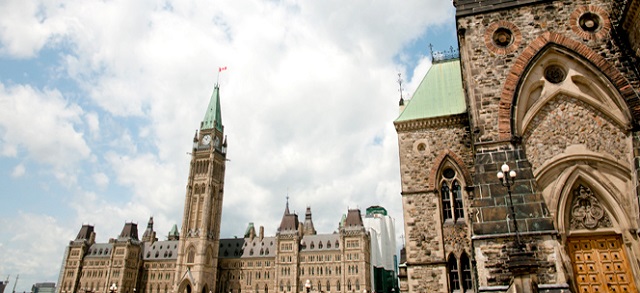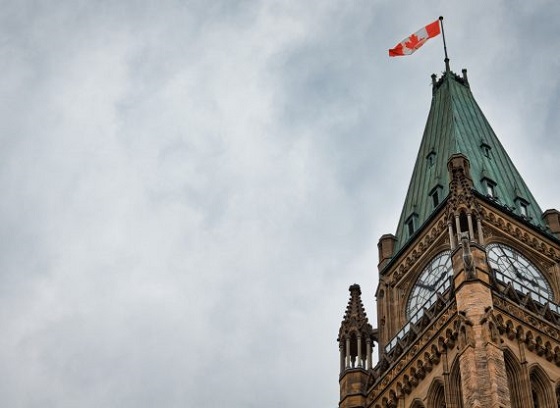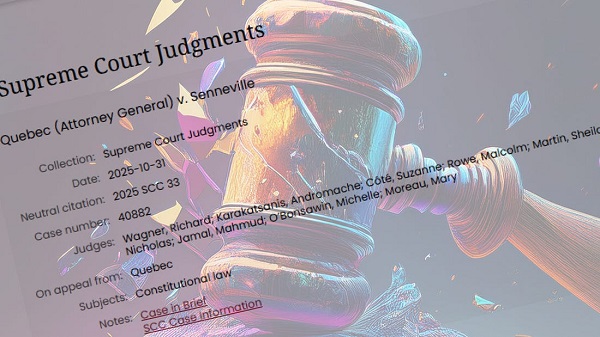Business
‘The DNA Of Our Foreign Policy’: How USAID Hid Behind Humanitarianism To Export Radical Left-Wing Priorities Abroad


From the Daily Caller News Foundation
By Thomas English
Behind the veil of humanitarian aid, the U.S. Agency for International Development (USAID) doled out billions in taxpayer dollars to engage in left-wing social engineering abroad — from rampant LGBT advocacy to diversity, equity and inclusion (DEI) programs and tech censorship.
President John F. Kennedy established USAID in 1961 to, in his words, “provide generously of our skills, and our capital and our food to assist the peoples of the less-developed nations to reach their goals in freedom.” The agency, though, has reinterpreted Kennedy’s mission statement to mean that Ecuador suffers from a lack of drag shows, that Peruvian comic books are too light on transgender representation, that the Serbian workplace is insufficiently welcoming to the homosexual community — while also offering social media platforms a host of creative tactics to suppress those who disagree with USAID’s social agenda.
“It’s probably one out of every three grants is totally insane left-wing nonsense … USAID has always been somewhat left, but when the Biden administration started, you can clearly see a huge uptick in spending,” Parker Thayer, who researches federal spending at Capital Research Center, told the Daily Caller News Foundation. “The amount of lunatic, fringe grants goes up dramatically. For example, if you go to USAspending[.gov] and search for the keyword ‘transgender,’ the graph is basically a vertical line when you hit 2021. It’s kind of remarkable.”
He also emphasized his discovery of a $13 million grant for an Arabic-language translation of “Sesame Street,” calling it “something else, man.”
Other programs include a $2 million grant for funding sex-change procedures in Guatemala, $500,000 for LGBT inclusion in Serbian workplaces, $70,000 for a DEI-themed musical in Ireland, a transgender clinic in Vietnam, a similar clinic in India, $46,000 in HIV care for transgender South Africans, $1.5 million more for South African children to “learn through play,” $20,000 Bulgarians to enjoy a vaguely-defined “LGBT-related event” — programs for which former USAID Administrator Samantha Power said “a big pot of money” wasn’t enough.
These and other programs were the vehicle through which Power went about “working LGBT rights into the DNA of our foreign policy,” a priority she emphasized to Harvard students in 2015 during her tenure as U.S. Ambassador to the United States.
“One of the most common complaints you will get if you go to embassies around the world — from State Department officials and ambassadors and the like — is that USAID is not only not cooperative; they undermine the work that we’re doing in that country,” Secretary of State Marco Rubio, who assumed control over USAID on Monday, said. He condemned the agency’s more questionable programs as not only a waste of taxpayer dollars, but a diplomatic liability.
“They are supporting programs that upset the host government for whom we’re trying to work with on a broader scale,” he said.
Beyond pro-LGBT funding, former President Joe Biden’s USAID offered social media platforms a “disinformation primer,” a 100-page document providing guidance for countering “disinformation” through increased fact-checking and censorship — policies it said would make platforms more “democratically accountable.”
The document credits some of its content suppression tactics to the Global Engagement Center (GEC), a now-defunct agency that operated under the State Department. To “counter disinformation,” GEC recommended ginning up “moral outrage” against content that “violates [the] sacred value” of what it considers “the truth.”
Biden seemed to heed GEC’s guidance on moral outrage during the height of the pandemic in 2021, accusing Facebook of “killing people” by insufficiently censoring anti-vaccine content on the platform. Facebook founder Mark Zuckerberg recalled during his Jan. 10 appearance on “The Joe Rogan Experience” an instance when the Biden administration pressured him to censor a satirical meme about vaccine side effects. Biden later walked back his accusation against Facebook in an interview with CNN.
The USAID-funded primer also recommended “advertiser outreach,” a strategy that would financially throttle agency-disfavored informational outlets by informing advertisers of potential damage to brand reputation.
“[Advertisers] inadvertently are funding and amplifying platforms that disinform. Thus, cutting this financial support found in the ad-tech space would obstruct disinformation actors from spreading messaging online,” the Disinformation Primer reads. “Efforts have been made to inform advertisers of their risks, such as the threat to brand safety by being placed next to objectionable content.”
The document further characterized the legacy media’s recent decline “leading to a loss of information integrity,” which thereby justifies USAID’s efforts to combat those “casting doubt on media.”
“It leads to a loss of information integrity. Online news platforms have disrupted the traditional media landscape. Government officials and journalists are not the sole information gatekeepers anymore … Because traditional information systems are failing, some opinion leaders are casting doubt on media, which, in turn, impacts USAID programming and funding choices,” the document continued.
USAID also faced intense congressional scrutiny in 2023 after allegations emerged that its PREDICT program and subsequent grants to EcoHealth Alliance potentially funneled U.S. taxpayer funds into gain-of-function coronavirus research at the Wuhan Institute of Virology — which raised questions about USAID’s possible role in contributing to the origins of the COVID-19 pandemic.
Republican Kentucky Sen. Rand Paul complained that USAID refused to hand over documents pertaining to the allegations and the agency’s funding habits.
“The response I got from your agency was: ‘USAID will not be providing any documents at this time.’ They’re just unwilling to give documents on scientific grant proposals — we’re paying for it, they’re asking for $745 million more in money. We get no response,” Rand said. “We’re not asking for classified information. We’re not asking for anything unusual. 20 million people died around the world … and you won’t give us the basic information about what grants you’re funding — should we be funding the Academy of Military Medical Research in China?”
Secretary of State Marco Rubio echoed Rand’s transparency concerns after announcing he was the USAID’s new acting director Monday, calling the agency “completely uncooperative.”
“They’re one of the most suspicious federal agencies that exists,” Thayer told the DCNF, suggesting the agency’s reputation for being opaque is justified. “It’s kind of a character trait for USAID to be less than transparent.”
Thayer explained that, in his research, USAID is selective in its transparency. The grants he called “complete nonsense,” such as the “Sesame Street” translation, “are very specific about what they’re doing. And the ones that are vaguely humanitarian-sounding are usually written like someone put a sociology textbook through a word randomizer then just took whatever it spat out and put it on the page. They are so full of jargon words that they’re basically incomprehensible, even to people who understand what the jargon words are supposed to mean.”
“I got $1.1 million for a study of youth rural migration in Morocco,” he added. “I literally — I cannot help you in understanding what that could possibly mean. I have no idea what that means.”
Elon Musk, the leader of the Department of Government Efficiency (DOGE), claimed that he and President Donald Trump agreed to shutter the agency entirely during an X Spaces conversation early Monday morning. Rubio emphasized in a Tuesday interview with Fox News that he does not intend to “get rid of foreign aid,” but is considering whether USAID ought to be housed under State Department or remain an autonomous agency.
“This is not about getting rid of foreign aid,” Rubio said. “There are things we do through USAID that we should continue to do, that make sense. And we’ll have to decide: Is that better through the State Department, or is that better through a reformed USAID? That’s the process we’re working through … but they’re completely uncooperative. We had no choice but to take dramatic steps to bring this thing under control.”
Business
Budget 2025 continues to balloon spending and debt

The Canadian Taxpayers Federation is criticizing Prime Minister Mark Carney for ballooning spending and debt in Budget 2025.
“Budget 2025 shows the debt continues to spiral out of control because spending continues to spiral out of control,” said Franco Terrazzano, CTF Federal Director. “Carney needs to reverse course to get debt and spending under control because every dollar Canadians pay in federal sales tax is already going to pay interest charges on the debt.
“Carney isn’t close to balancing anything when he’s borrowing tens of billions of dollars every year.”
The federal deficit will increase significantly this year to $78.3 billion. There is no plan to balance the budget and stop borrowing money. The federal debt will reach $1.35 trillion by the end of this year.
Debt interest charges will cost taxpayers $55.6 billion this year, which is more than the federal government will send to the provinces in health transfers ($54.7 billion) or collect through the GST ($54.4 billion).
Budget 2025 increases spending by $38 billion this year to $581 billion. Despite promises to control spending in future years, Budget 2025 projects that overall spending will continue to rise by billions every year.
“Canadians don’t need another plan to create a plan to meet about cutting spending, Canadians need real spending cuts now,” Terrazzano said. “The government always tells Canadians that it will go on a diet Monday, but Monday never comes.
“And the government isn’t really finding savings if it’s planning to keep increasing spending every year.”
Budget 2025 commits to “strengthening” the industrial carbon tax and “setting a multi-decade industrial carbon price trajectory that targets net zero by 2050.”
“Carney’s hidden carbon tax will make it harder for Canadian businesses to compete and will push Canadian entrepreneurs to set up shop south of the border,” Terrazzano said. “Carney should scrap all carbon taxes, cut spending and stop taking so much money from taxpayers.”
Business
Federal budget: Carney government posts largest deficit in Canadian history outside pandemic

-
Federal deficit projected to exceed $78 billion
-
This is Ottawa’s tenth consecutive unbalanced budget
-
Every newborn baby in Canada now enters the world with a debt of more than $33,000.
Repackaging record spending as “investments” while offering no credible path back to balance is the opposite of responsible fiscal stewardship, asserts the MEI in response to the tabling of the federal budget this afternoon.
“Canadians should find a deficit this large extremely troubling,” says Emmanuelle B. Faubert, economist at the MEI. “The attempt to disguise it under a new wave of so-called investments makes it even more concerning.
“It’s one thing to spend money you don’t have; it’s yet another to shirk responsibility for it.”
The Carney government is projecting a deficit of $78.3 billion for 2025-2026, up from $48.3 billion last year.
Interest payments are projected to rise to $55.6 billion this upcoming fiscal year, but servicing the debt will mount rapidly: to $76.1 billion by 2030, a 37 per cent spike.
Current debt charges cost taxpayers more than federal healthcare transfers to provinces, which amount to $54 billion annually.
This budget deficit would bring the national debt to $1.48 trillion, and mark the tenth consecutive year without a balanced federal budget. Every newborn baby in Canada now enters the world with a debt of more than $33,000.
Much of the new spending is categorized as capital as opposed to operational, which is a new reclassification scheme unveiled by the Carney government that does nothing to change the total debt. The government’s net debt is predicted to grow by another 21 per cent by 2030, to $1.79 trillion.
The Build Canada Homes program, for one, has an initial $13-billion price tag. The MEI studied a similar program launched in New Zealand, which accomplished just 3 per cent of its total objective.
The MEI warns that this marks a shift toward increased central planning, with Canada becoming an economy where politicians, instead of businesses and consumers, decide which industries succeed.
Overtures in the budget hint at a possible future walk-back of the emissions cap, which the think tank has strongly advocated for. In March, the PBO released a report estimating that the emissions cap would reduce our collective prosperity by $20.5 billion in 2032 and result in 40,300 fewer jobs than there would otherwise be.
A clearer path toward shrinking the federal bureaucracy has been laid out, with the government planning to eliminate 16,000 full-time positions, representing 4.5 per cent of the workforce as of March 2025.
Economist Emmanuelle B. Faubert would like the government to go further. While Ottawa plans to maintain the size of the federal bureaucracy at about 330,000 employees by 2028-29 through attrition, the MEI sees this as insufficient, and urged a more ambitious approach in its pre-budget submission.
The MEI recommended cutting the federal workforce by 17.4 per cent, mirroring the Chrétien-era reductions of the 1990s, which would eliminate roughly 64,000 positions and save taxpayers $10 billion annually.
The MEI welcomes the decision to expand capital cost allowances, letting businesses write off new machinery and equipment more quickly. This measure promotes investment and productivity by reducing the upfront cost of doing business.
“The government may try to rebrand its debt, but Canadians will still be the ones paying it off for decades,” says Ms. Faubert. “Carney calls it a generational budget, and he’s right, but only because future generations will be stuck footing the bill.”
* * *
The MEI is an independent public policy think tank with offices in Montreal, Ottawa, and Calgary. Through its publications, media appearances, and advisory services to policymakers, the MEI stimulates public policy debate and reforms based on sound economics and entrepreneurship.
-

 Crime2 days ago
Crime2 days agoPublic Execution of Anti-Cartel Mayor in Michoacán Prompts U.S. Offer to Intervene Against Cartels
-

 Business1 day ago
Business1 day agoCarney government should retire misleading ‘G7’ talking point on economic growth
-

 Aristotle Foundation2 days ago
Aristotle Foundation2 days agoB.C. government laid groundwork for turning private property into Aboriginal land
-

 Brownstone Institute23 hours ago
Brownstone Institute23 hours agoBizarre Decisions about Nicotine Pouches Lead to the Wrong Products on Shelves
-

 Alberta1 day ago
Alberta1 day agoCanada’s heavy oil finds new fans as global demand rises
-

 Censorship Industrial Complex1 day ago
Censorship Industrial Complex1 day agoPro-freedom group warns Liberal bill could secretly cut off Canadians’ internet access
-

 Justice2 days ago
Justice2 days agoA Justice System That Hates Punishment Can’t Protect the Innocent
-

 Bruce Dowbiggin1 day ago
Bruce Dowbiggin1 day agoA Story So Good Not Even The Elbows Up Crew Could Ruin It









